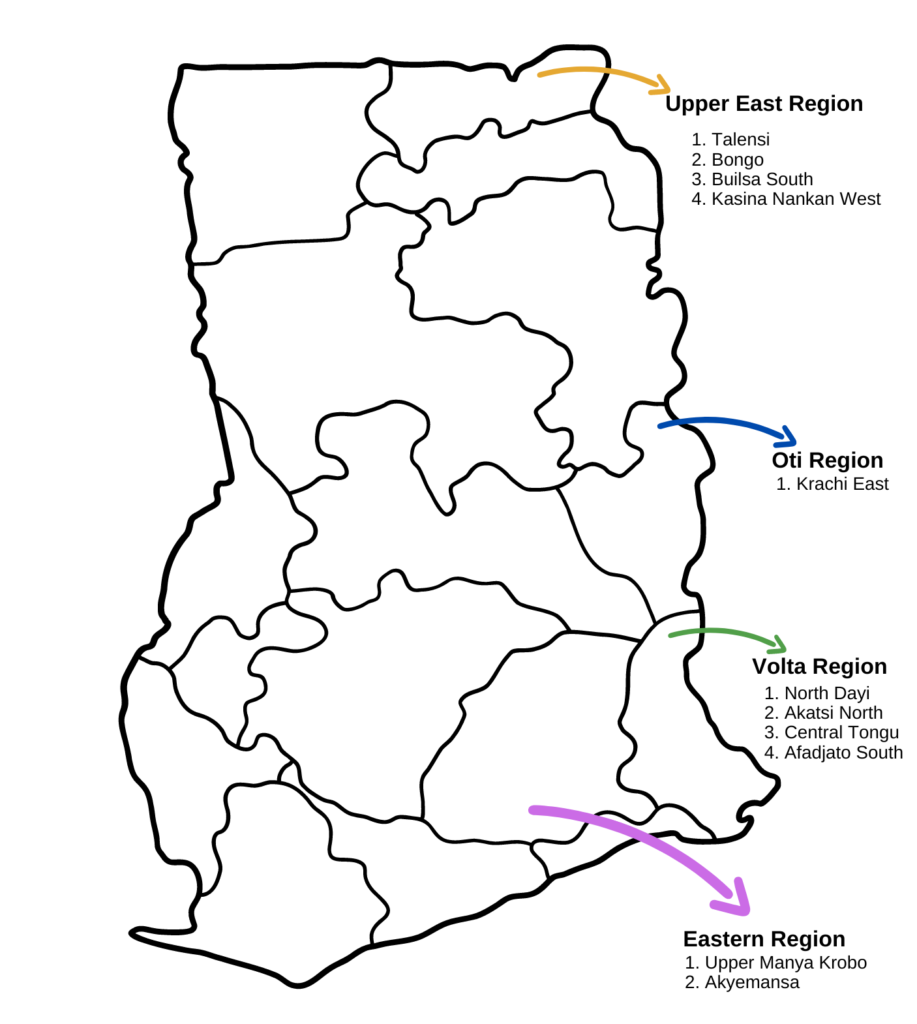Duration 2021 - 2023
Background
Young Ghanaians faced significant challenges in making informed reproductive health decisions due to limited access to age-appropriate information. Their choices, often influenced by environmental factors, frequently led to negative health outcomes. Adolescents represented a vulnerable demographic, comprising a substantial portion of Ghana’s population yet lacking adequate sexual and reproductive health (SRH) education.
In 2021, UNICEF partnered with Savana Signatures to implement the Promoting Adolescent SRH Through Participatory Community Engagement (PASPCE) project. This initiative targeted adolescent boys and girls alongside community gatekeepers, including traditional and religious leaders, across 17 districts in five regions. The project aimed to empower young people with comprehensive SRH knowledge while creating supportive community environments for exercising these rights.
The project is being implemented in 17 districts across five regions.

Strategy
The PASPCE project adopted a dual approach combining institutional strengthening with direct community engagement and advocacy. Savana Signatures worked closely with health promotion units in 17 district health directorates to facilitate dialogues between adolescents and community leaders. The implementation strategy focused on three key pillars:
1. School and community mass engagements created platforms for intergenerational dialogue about adolescent SRH needs.
2. The project simultaneously built youth capacity through empowerment programs that equipped adolescents to advocate for their health rights.
3. Digital access points were strengthened through promotion of the AGOOSHE+ Helpline as a confidential information and referral service.
Key Highlights
1. Provided weekly SRH information and referrals to 120 adolescents through the AGOOSHE+ Helpline
2. Enhanced SRH knowledge among 30,000 students across 50 primary, JHS, and SHS schools
3. Trained and engaged 210 community gatekeepers (traditional/religious leaders) as adolescent SRH allies
4. Established sustainable school-community partnerships for ongoing SRH education
5. Documented measurable improvements in health-seeking behaviors among target populations
6. Created safe spaces for adolescent health discussions in previously conservative communities and
7. Strengthened referral networks between schools, communities, and health facilities.
The project successfully bridged generational gaps in SRH understanding while establishing sustainable systems for adolescent health education. Monitoring data demonstrated significant improvements in both knowledge levels and service utilization among target populations across all 17 districts.

